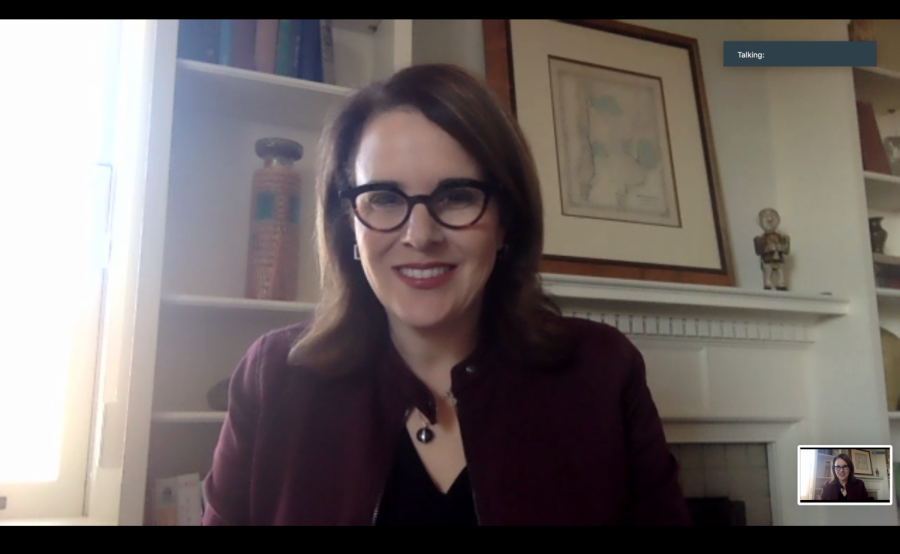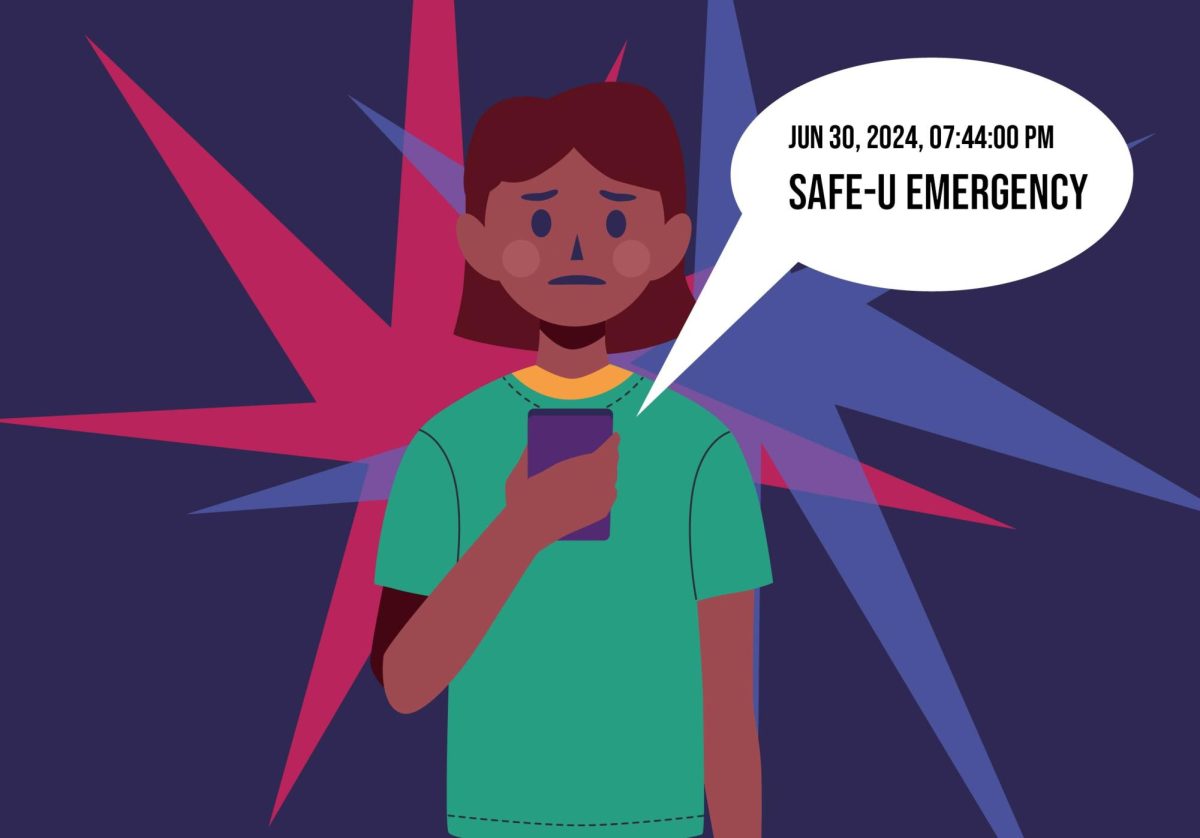In an interview with the Minnesota Daily, University of Minnesota President Joan Gabel commented on the upcoming six-month anniversary of George Floyd’s death, plans for spring semester and the impact of the presidential election.
Gabel also discussed the increasing numbers of COVID-19 cases on and around campus and the University’s future relationship with Zoom.
How do you think the outcome of the recent presidential election and new administration will impact the University as a whole, as well as students and campus climate?
A lot of us are talking about that in different forums and the different ways in which higher administrators from across the country come together, you know, your Athletic Conference, APLU [Association of Public and Land-grant Universities], AAU [Association of American Universities], lots of predictions and analysis. President-elect [Joe] Biden has said and hinted at a few things around stimulus funds, which we think would be great, obviously, in order to keep the higher ed financial model stable. As we know, there will be a new Secretary of Education. And the current Secretary of Education did a lot of things that were different from the administration prior to hers … But one of the main things that is really important for particularly the Twin Cities campus and some of our system campuses as well — but particularly here — is that the federal support for research and the federal investment in science and discovery is critically important to who we are and what we do as the cornerstone of the mission. The new administration is saying that they will invest in that partnership. So, for many of our faculty, staff and students where that is their work, their life’s work, their calling, that is very good news. One more thing I expect is that there’s likely to be an impact on our international relationships too.
Is the administration thinking at all about possibly introducing a mandatory COVID-19 testing element at some point in the future, depending on how the pandemic progresses?
It could be that testing becomes inexpensive enough and accurate enough that it is a useful enough tool. … If the testing can be performed sufficiently and accurately enough, then we may want to introduce it. But it’s very possible that by the time the testing reaches that level, so will the vaccine reach its distribution. It would be a very nice problem to have, to be choosing between the two. We would feel very much like we were on the other side when we get to that point.
Nov. 25 marks the six-month anniversary of the killing of George Floyd by officers of the Minneapolis Police Department. What progress have we made as a University and community to better respond to this event and other systemic violence?
We have been working around equity and inclusion broadly and then specifically on campus safety, which we consider a component of an inclusive and welcoming campus climate. … We have brought in an outside expert, Dr. Cedric Alexander, to help us specifically with the safety component. He’s finished with his interviews, he did hundreds of interviews with faculty, staff, students, community partners, board members, alumni, etc. and is done with that phase and is now in the report writing recommendation phase and will incorporate his recommendations into a safety plan. … It’s a very interesting challenge, because this might be the most bimodal issue that I’ve navigated as an administrator or in my own personal life where, we have absolutely legitimate voices around where police make them feel unsafe and absolutely legitimate voices around people who don’t feel safe unless there is additional police protection. That’s a hard thing to compromise between. We are trying to create a way in which we deal with things like emergency response and crime reduction and how we deal with feeling safe and knowing that your unique life experience and point of view is not only respected but desired, wanted and included. Dr. Alexander is helping us with this as is and are all of our representative community voices, both on campus and amongst our neighbors so to speak. So, it’s all coming together, and it will result in a plan that will start to roll probably early 2021.
Should students, particularly those in University housing, anticipate a similar Maroon and Gold Sunrise plan for the spring semester that involves back home time restrictions and possibly a delay to in-person instruction?
I think we will have a Maroon and Gold Sunrise Plan 2.0, but I think one of the things that we will be able to do better, is we probably won’t be as caught by surprise, like we were at the beginning of the fall semester, by virtue of what happened on other campuses that opened before we did. … So we don’t expect delays, we may do stairsteps into more open activities. A lot of that will depend on what happens between now and the beginning of next calendar year around testing, mitigating treatments, and maybe even some opportunity for vaccination for vulnerable populations and also the numbers in the community around us.
When can students expect to learn more about tuition rates for the next academic year? As tuition was held flat in almost all academic programs this year, should students anticipate a larger increase in tuition costs to account for the financial impact of the COVID-19 pandemic?
Before the pandemic, we had an internal unwritten goal of staying below the inflationary index that we follow — that is still our goal. If there is any increase, it would still be very low. So it’s not like we’re rebounding, we don’t expect like a reverb from the fact that we kept things flat. But the formal recommendation on tuition is part of a very large total budgetary process that we go through that includes all of our work that we do with the state around the state support to the institution. All of that comes together through the spring and ultimately results in a request to the board over the summer; the board sets tuition. But the administration’s recommendation to the board is usually pretty well known by about a month beforehand. So late spring, early summer, you’ll start to hear what the administration is recommending.
Zoom, the video conferencing platform that is widely used by the University, has recently come under fire from the Federal Trade Commission for allegedly lying to its users about security measures and the levels of encryption within the platform. The University’s contract with Zoom extends until 2024, but is there any plan to move away from the platform as a result of these privacy issues?
Not yet. We’ve been working very closely with our own IT department on security and we feel like we have appropriate levels of security managed internally. But if the circumstances change, where if we didn’t feel like the platform was safe and offered the appropriate protections, then we would reconsider. But, right now we’re still okay.
[To change platforms] would depend on what additional concerns came up and when they came up. It’s a very large contract, so a change to it would probably require a public discussion in front of the board. So, it wouldn’t catch anybody by surprise, it would go through the whole shared governance process.




























CapnRusty
Nov 23, 2020 at 1:03 pm
It is unfortunate that the University president is unfamiliar with the provisions of the United States Constitution. Joe Biden is a citizen. He could become President if the Electoral College determines that he won the election. That has not happened yet. Perhaps some faculty members could give her a quick briefing on how the electoral process works in our nation.